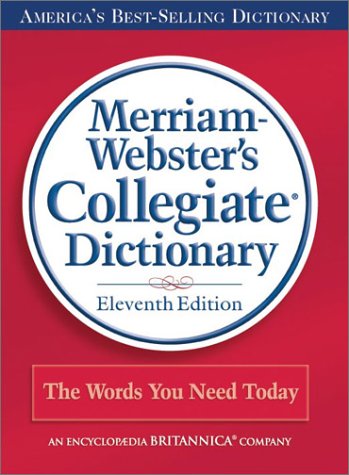

In 1831, George and Charles Merriam founded the company as G & C Merriam Co. Is an American company that publishes reference books and is especially known for its dictionaries. Its editors star in online videos on hot-button topics like the serial comma, gender pronouns and the dreaded “irregardless.” Its Twitter feed has become a viral sensation, offering witty — and sometimes pointedly political — commentary on the news of the day.Merriam-Webster, Inc. — Merriam-Webster, the oldest dictionary publisher in America, has turned itself into a social media powerhouse over the past few years.
Dictionary Merriam Webster Dictionary Online Registration Card From
Stamper, the author of the new book “Word by Word: The Secret Life of Dictionaries,” was more than happy to offer a tour of some of the distinctly analog oddities in the basement.Whether you want biographies, novels or essay collections, we can help you find your next book to read. One online admirer has carefully tracked minute changes in her hair (which, for one thing, is purple).But the company remains very much a bricks-and-mortar operation, still based in this small New England city where the Merriam brothers bought the rights to Noah Webster’s dictionary in the 1840s and carried on his idea of a distinctly American language. Her witty “Ask the Editor” video contributions, like a classic on the plural of octopus, and personal blog, Harmless Drudgery, have inspired a Kory Stamper Fan Club on Facebook. In 1843, after Noah Webster died, the company bought the rights to.Merriam-Webster’s Collegiate ® Dictionary, Eleventh Edition Please have your dictionary and registration card from its inside cover handy, for proof of purchase.Kory Stamper, a lexicographer here, is very much part of the vanguard of word-nerd celebrities.
...

A downstairs gallery includes a 1934 poster advertising the second edition of the Webster’s New International Dictionary, billed as “one of the thickest books ever printed.” (The technology needed to bind it, Ms. When Merriam-Webster began its videos, the heavy-breathing fan mail prompted her to create an “Ask the Editor Video Hotness Chart.”“This just sums up the job so well,” she said in a sub-sotto-voce whisper.If dictionaries are a form of information technology, the building is in some ways a catalog of obsolescence. With ending sentences with prepositions as well as — brace yourself — split infinitives.) But she also describes being caught up in some higher-stakes fights.One chapter takes an uncomfortable look at the racial assumptions baked into a Merriam-Webster definition of the color term “nude.” Another recounts the furor that erupted in 2009 when it added a subdefinition to its entry on “marriage,” noting uses to refer to same-sex unions that weren’t necessarily legally sanctioned.That brought reams of hate mail, but most interactions with readers are friendlier. Stamper has no patience for self-styled purists who quail at “irregardless” — an actual word, she notes.
But their work, she believes, remains as vital as it was in Noah Webster’s day.“There’s something to having a bunch of nerds sitting in an office dispassionately reading lots and lots of material and distilling the meaning of a word as it’s been used in lots of places,” she said. (It currently has 70 employees.)There are only about 50 lexicographers working at dictionary companies in the United States today, Ms. Merriam-Webster, a subsidiary of Encyclopaedia Britannica, itself announced layoffs just as she was finishing her manuscript.


 0 kommentar(er)
0 kommentar(er)
